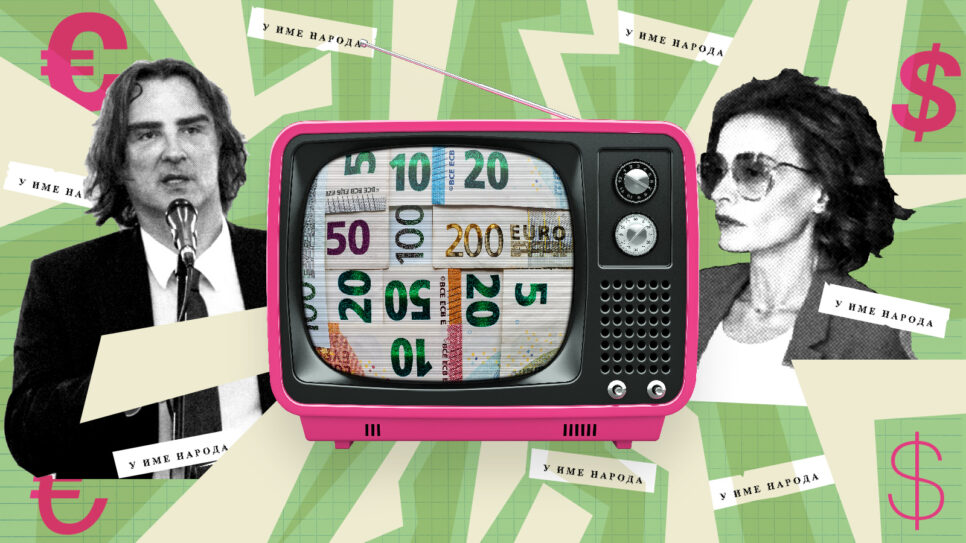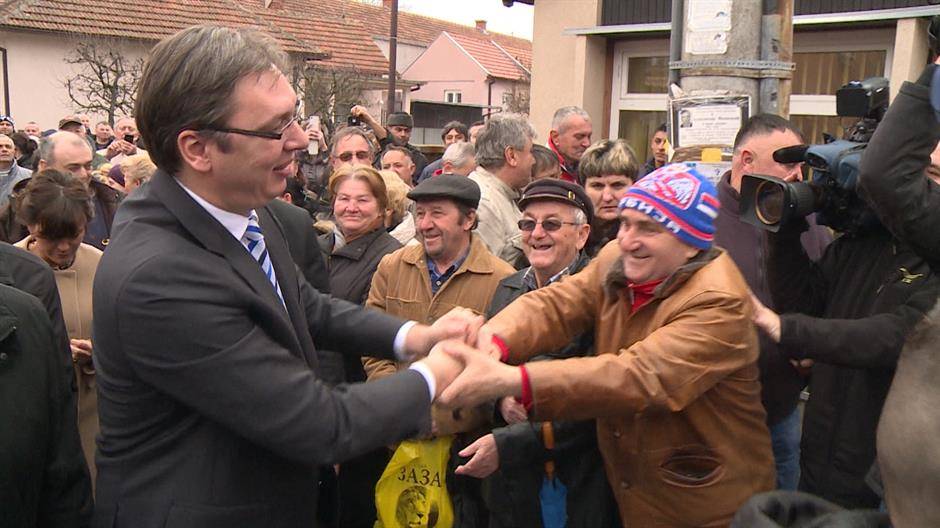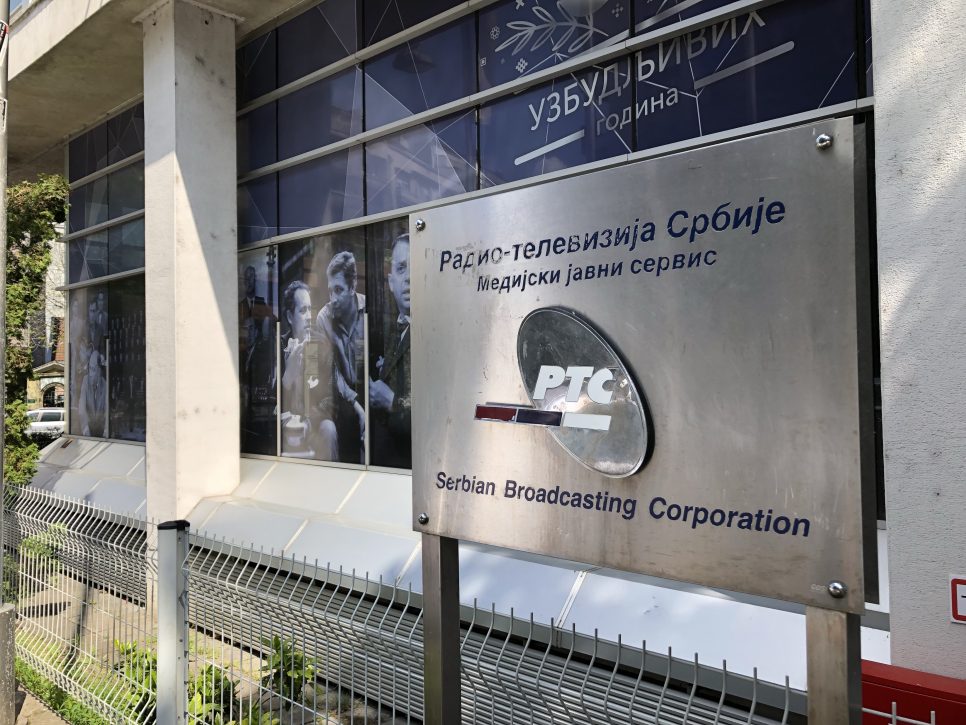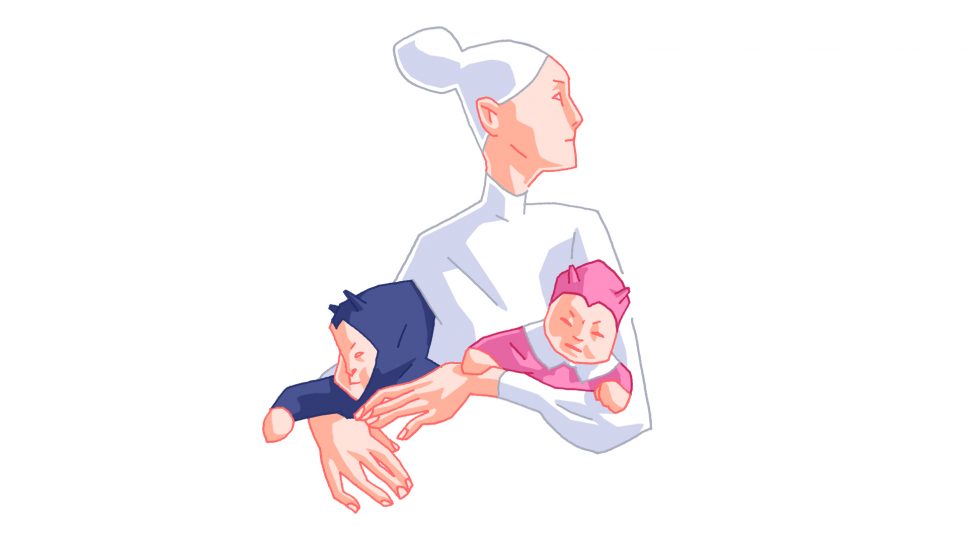On the eve of the electoral silence in December of last year, a Pink TV host welcomed President Aleksandar Vučić to the studio. Similar to the previous year, when he emerged from a refrigerator holding a jar of pickles and joined other members of the Serbian Progressive Party (SNS) in the studio, this time, amidst thunderous applause and song, the president found his place at one of the five round tables in the studio.
The nearly two-hour-long show, along with other programs on Pink and other TV stations with national broadcasting licenses, was monitored by the Regulatory Authority for Electronic Media (REM) during the election campaign.
However, the report they published following the elections in late December did not contain data for Pink, Happy, Prva, or B92.
When the non-governmental organization Bureau for Social Research (BIRODI) requested monitoring data for these TV stations, REM briefly responded that “it does not have other information apart from the already published data.”
However, this was not true.
The Journalists’ Association of Serbia (UNS) revealed that REM’s Expert Service monitored the programs of these television stations and that the data does indeed exist.
The Center for Investigative Journalism in Serbia (CINS) had access to these data. Here is what they reveal:
- Dominance of the list Aleksandar Vučić – Serbia Must Not Stop
On Pink TV, over 18 hours of election programming were dedicated to the Aleksandar Vučić – Serbia Must Not Stop list, while all other participants put together had about five hours of exposure.
Happy devoted around 20 hours of pre-election programming to the list associated with the Serbian Progressive Party, followed by the Serbian Radical Party (SRS) with about six hours. Other election participants were given around 11 hours of airtime.
The list associated with Aleksandar Vučić had over 12 and a half hours of exposure on B92. Other election participants had about three hours. On Prva TV, SNS received just over eight hours of pre-election exposure, while others had just under five hours.
- Anti-opposition and pro-government sentiment
Not only was there a significant difference in the allocated time, but these TV stations largely reported negatively about the opposition while speaking positively about the government. For example, nearly half of the election program on Pink and B92 had a negative sentiment towards the opposition and its individual members.
Dragan J. Vučićević, the owner and editor of the pro-government tabloid Informer, appeared 12 times in Pink’s programs during the 45-day campaign period. During one of his appearances on the “Novo Jutro” show, Vučićević stated that the “Đilas followers are a radicalized minority” that is “above the law,” in contrast to the “quiet minority” of decent people represented by Aleksandar Vučić, as reported by Vreme.
Similarly, on TV Happy, criticism of the opposition and its leaders could be heard in nearly 40 percent of the election-related programs. Almost a quarter of TV Prva’s program was directed towards criticizing the opposition.
At the same time, all TV stations with national broadcasting licenses mostly reported on the actions of the government and the Serbian Progressive Party (SNS) with a positive sentiment.
Zoran Gavrilović from BIRODI told CINS that there is a system that produces inequality, favoring Aleksandar Vučić, whether he is an election participant or a supporter of the list.
“When you look at the time, sentiment, and topics, it’s simply the propaganda of Aleksandar Vučić broadcast through a controlled media system.”
- Analysts as promoters of the government
REM’s monitoring shows that during the election campaign, analysts on TV stations with national broadcasting licenses largely promoted the government’s actions, while criticizing the opposition.
REM’s expert services recorded that analysts were present on Pink for 28 hours during the election campaign, which is more than a third of the total election program on this TV station.
Nearly one-third of TV Prva’s election program consisted of discussions with analysts. REM identified the director and chief editor of Studio B Ivana Vučićević and the chief editor of Srpski portal Dejan Vukelić as analysts on this TV station. During their appearance on the “Prelistavanje” show, they discussed the support of over 2,000 public figures for the list gathered around SNS. On this occasion, they praised the moves of all signatories and criticized the opposition.
“Vučić is to blame for everything – that seems to be the lead in the opposition’s entire campaign on every topic,” Vučićević said, while Vukelić explained that “here, some people live in a completely parallel and imaginary United Media universe (…), where this is Mordor, where nothing works.”
More than a quarter of the election program on TV Happy was dedicated to analysts, who were present for over 24 hours in regular programs and special election broadcasts.
Analysts also made up 20 percent of the total election program on B92, where their exposure amounted to about 10 hours.
Gavrilović says that this selection of analysts simulates public opinion because they do not use any research for their analyses.
“These are people who are there to cover and replace real electoral process participants, primarily the ruling party, and to say all the negative things that someone from the party would say, but doesn’t do so.”
- Vučić helped the campaign as president
In addition to the election activities of political parties, REM specifically noted the appearances of state officials during the campaign. All commercial television stations reported on the activities of Serbia’s President, as well as the Prime Minister, ministers, and other members of the government.
Thus, as Serbia’s President, Aleksandar Vučić had about 14 hours of TV exposure on Pink and the same amount on B92. TV Happy broadcasted the president’s activities for six and a half hours, while TV Prva did so for one hour less.
Before the elections were called, amendments were made to the Law on Electronic Media. The changes prohibited the media from reporting on events opening infrastructure and other facilities or marking the beginning of the construction of such facilities 30 days before the elections if public officials who are candidates for President, MPs, or councilors are present.
However, when it comes to these elections, the new rule did not have a significant impact. This provision of the law applies only to those officials who are simultaneously candidates in the elections. Even though Aleksandar Vučić headed the Serbian Progressive Party’s list, he was not a candidate and was thus exempt from this restriction.
If we add to this the participation of the “Serbia Must Not Stop” list, which Vučić headed, and the appearances of analysts who mostly spoke in favor of the government on all commercial television stations, one can observe that SNS enjoyed absolute media dominance during this campaign.






What do you think